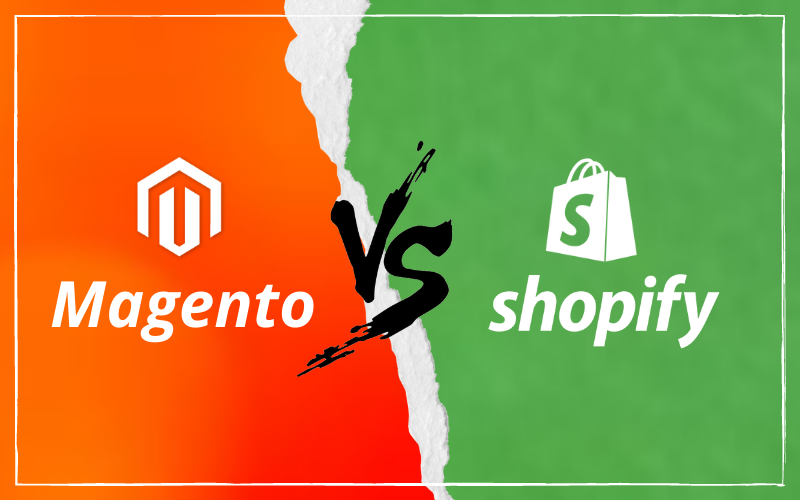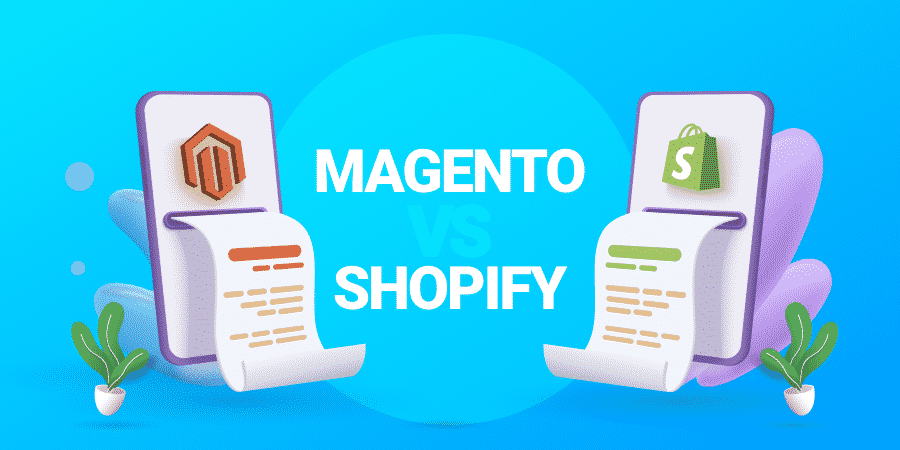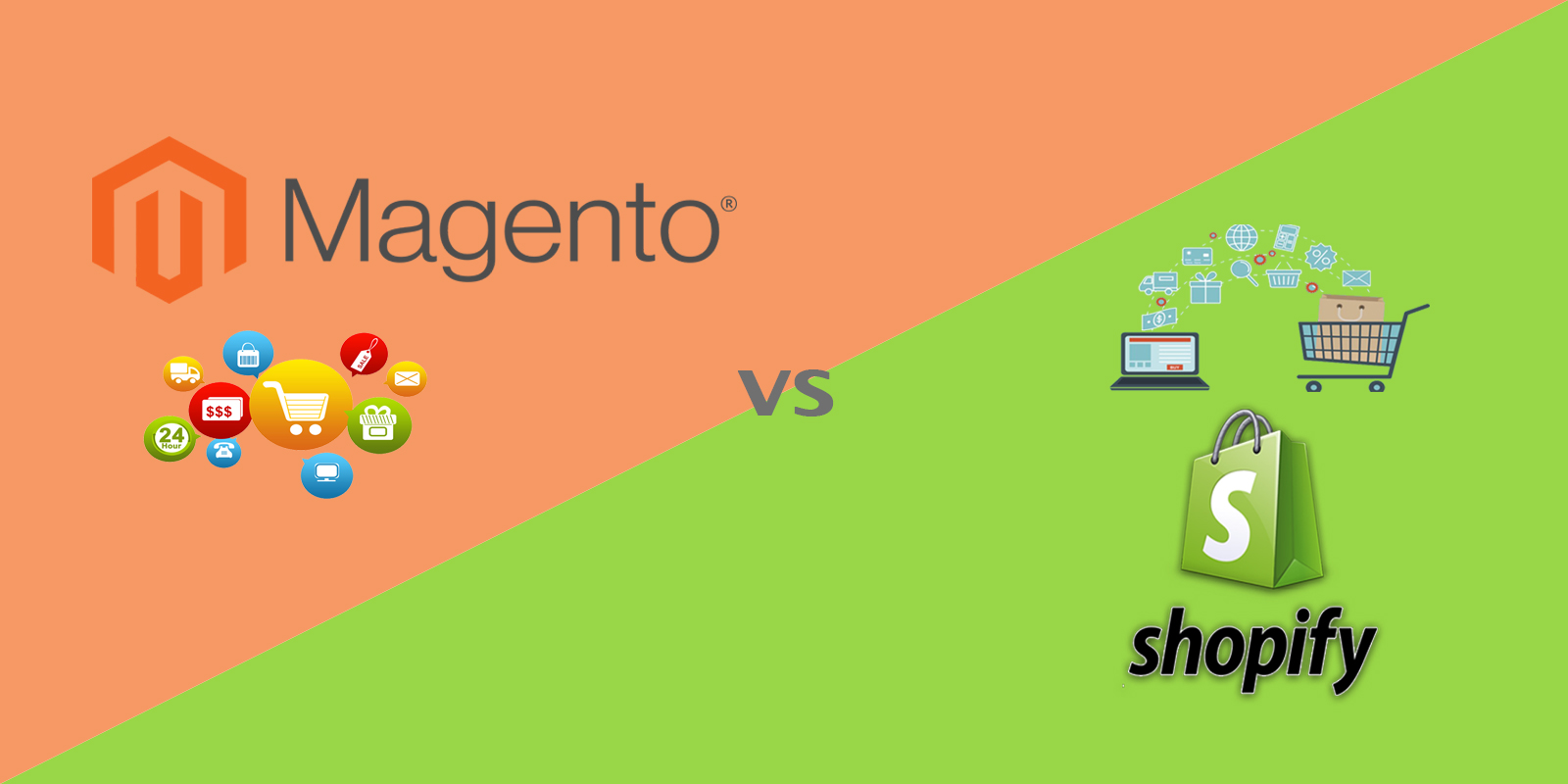The world of ecommerce is booming, and choosing the right platform to power your online store is crucial for success. Two industry giants, Magento and Shopify, constantly vie for the top spot. But which one reigns supreme for your business? This comprehensive guide delves into the core functionalities, strengths, and weaknesses of Magento vs Shopify, empowering you to make an informed decision.
Why Choosing the Right Platform Matters
The ecommerce landscape is thriving, with online sales projected to account for a significant portion of global retail sales. To capitalize on this growth, you need a robust and scalable platform that caters to your specific business needs. Selecting the right platform from the outset lays the foundation for a successful online venture. A poorly chosen platform can stifle your growth, limit your customization options, or become a burden to manage as your business scales.Magento vs Shopify: A Head-to-Head Comparison Overview
Magento and Shopify are both popular ecommerce platforms, but they cater to different needs. Here’s a quick glimpse into their core strengths:- Magento: Open-source and powerful, offering ultimate control, flexibility, and scalability. Ideal for businesses with complex product catalogs, high-volume sales, and the technical expertise to leverage its full potential.
- Shopify: User-friendly and hosted, with a wide range of built-in features and a user-friendly interface. Perfect for startups and businesses seeking a quick and easy solution with minimal technical knowledge required.
Platform Functionality
- Magento: Provides extensive customization options through its open-source architecture. You can modify the core code, integrate third-party extensions, and create a truly unique online store that reflects your brand identity. This level of control allows you to tailor the shopping experience to your specific customer base and implement features that differentiate you from competitors. However, this flexibility demands technical expertise in-house or the ability to hire developers to manage the platform effectively.
- Shopify: Offers a user-friendly interface with a vast selection of pre-built themes and apps available on their marketplace. While customization is possible through these themes and apps, it’s not as extensive as Magento. This can limit tailoring the platform to your specific needs, especially if you have a unique brand vision or require highly specialized functionalities. However, Shopify’s user-friendly approach makes it ideal for entrepreneurs who are new to ecommerce or have limited technical resources.
Scalability and Growth
- Magento: Highly scalable, allowing you to accommodate a growing product catalog, increasing traffic volume, and complex business processes. Magento’s open-source nature empowers you to adapt the platform to your evolving needs. You can add functionalities through custom development or leverage a vast ecosystem of third-party extensions to handle everything from intricate product variations to advanced marketing automation. This scalability is ideal for businesses with ambitious growth plans and a vision to become major players in the ecommerce landscape.
- Shopify: Scales well for businesses with a moderate product range and sales volume. Shopify offers a variety of pricing plans that cater to different business sizes, and their app marketplace provides solutions for many common scaling needs. However, extensive customization or very high-volume stores may require additional development or migration to a more scalable platform in the future. Shopify’s limitations become more apparent as your business grows and your needs become more complex.
Product Management and Inventory
- Magento: Offers robust product management features, allowing you to create intricate product variations with multiple attributes (size, color, material) and manage stock levels effectively. This level of detail is ideal for businesses with highly diverse product offerings, such as clothing companies with various sizes and colors, or electronics stores with multiple configurations for each product. Magento empowers you to provide a seamless shopping experience for customers browsing through a vast and intricate product catalog.
- Shopify: Handles basic product variations well. You can create products with options for size, color, and other simple variations. However, managing complex product structures with numerous attributes can become cumbersome for businesses with a large and intricate product catalog. For businesses with a limited range of variations, Shopify might suffice. But companies with a complex product mix may find Magento’s robust product management features to be a game-changer.
Ease of Use and Management
- Magento: Magento has a steeper learning curve due to its open-source nature. While it offers extensive control, it requires technical expertise to set up, customize, and maintain. This can be a hurdle for businesses without in-house developers or the budget to hire them.
- Shopify: Shopify boasts a user-friendly interface with a drag-and-drop editor that makes it easy to set up and manage your store, even for beginners with no coding experience. This ease of use allows you to launch your store quickly and focus on adding products and marketing your business.
Cost Considerations
- Magento: Magento is a free, open-source platform. However, there are associated costs for web hosting, theme development, extensions, and potentially, a developer to manage the platform. These can add up quickly, especially for businesses requiring extensive customization.
- Shopify: Shopify offers tiered pricing plans with a monthly subscription fee. These plans include hosting, security, and a variety of built-in features. While there are additional costs for apps and themes beyond the base plan, the overall cost structure is more predictable compared to Magento.
Security and Reliability
- Magento: Security is a crucial consideration for Magento users as you are responsible for maintaining the platform’s security and PCI compliance. This might necessitate additional investment in security measures.
- Shopify: Shopify takes care of server security and PCI compliance for you. This eliminates a layer of complexity for store owners and ensures a secure platform for your customers’ transactions.
Making the Right Choice: Magento vs Shopify for Your Business
Choosing the right platform depends on your specific needs and goals. Consider the following factors:- Technical Expertise: If you have in-house developers or the budget to hire them, Magento’s flexibility and control might be appealing. However, if you lack technical resources, Shopify’s user-friendly approach is a better fit.
- Budget: Magento’s upfront cost might seem lower, but ongoing maintenance and customization expenses can add up. Shopify offers predictable monthly fees but has additional costs for apps and themes.
- Product Complexity: If you have a vast, intricate product catalog with numerous variations, Magento’s robust product management features might be essential. For simpler product lines, Shopify might suffice.
- Growth Plans: If you anticipate significant growth and require a highly scalable platform, Magento offers more flexibility in the long run. Shopify can handle moderate growth, but complex scaling might necessitate migration in the future.







